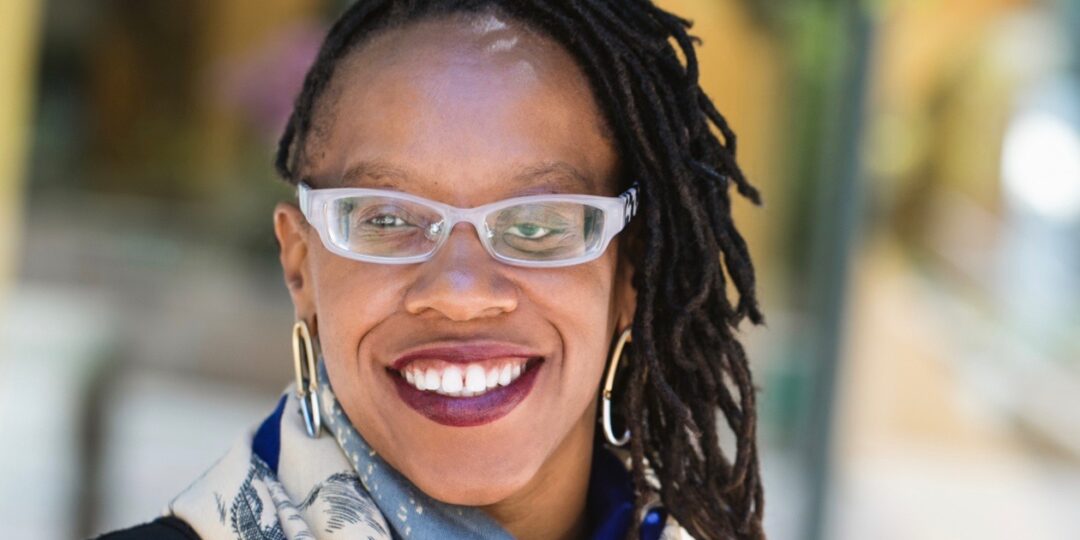By Lateefah Simon
My family arrived in California from Louisiana in the 1940’s. Like so many other families, my ancestors had to move to find opportunity and hope. Think of the Great Migration of six million Black people out of the South in the 20th century, or the 2005 exodus of Black folks from New Orleans after Hurricane Katrina.
Being uprooted is part of the human experience, which is why so many of us are so moved by the plight of immigrants today. Whether they come from Mexico, Central America, Africa, Asia or anywhere else, immigrants often are escaping places where they can’t make a living and raise their kids, places that are unsafe, places where they can’t envision a better future.
Yet, immigrants in our state and across the nation face unprecedented levels of harm and hate. The Trump administration’s ‘forced separation’ policy is tearing children from their families. They are hunting people down to deport them, most recently through the Trump administration’s attempt to end the DACA program protecting young Dreamers, and canceling temporary protected status (TPS) for immigrants escaping natural disasters in El Salvador, Haiti, and Nicaragua. Following in the federal government’s footsteps, a handful of state and local governments are insisting on greater cooperation from local law enforcement to identify and detain undocumented residents.
Just as this country historically has adopted punitive systems that harm people of color in the name of advancing “safety,” our federal administration and many state and local officials are now scapegoating and traumatizing immigrant communities. Activists use the term “crimmigration” to describe regularly targeting immigrants for punishment, with hundreds of thousands indiscriminately locked up for weeks, months, and even years in often-horrific detention facilities.
Philanthropy can play an important role in responding to this assault on decency, equity, and due process. We have a responsibility to listen to those without power. We must weigh the legacy of injustices confronting immigrants and communities of color. We must work to set things right—by investing in leaders, organizations, and local experiments that are leading the fight against the harm created by hateful government policies. And while we must stay nimble and responsive, we must also be prepared for the long-haul, making long-term investments that can sustain work and build power in this complex landscape over time.
At Akonadi Foundation, we have been thinking about how we and our partners in philanthropy can more effectively support and strengthen local movements in Oakland that are organizing and standing up for immigrants. We are honored to partner with a number of organizations working at the intersection of criminal justice, racial justice, and immigrant rights, including:
- ACUDIR (Alameda County United in Defense of Immigrant Rights), a coalition of local groups working to protect immigrant families and support alternatives to incarceration.
- Asian Prisoner Support Committee, an Oakland-based group working with inmates in San Quentin and Solano state prisons and the re-entry population in Alameda County.
- The Black Alliance for Just Immigration (BAJI), an Oakland-based group organizing African-American and black immigrant communities to advance the cause of immigrant rights.
The Black Alliance for Just Immigration is one of the nonprofits leading the new Freedom Cities movement, which seeks to make entire cities, towns, and communities safe for workers, the disabled, immigrants, Black people, Muslims, LGBTQ people, and all oppressed communities. Another leader in this movement is the Ella Baker Center, a longtime Akonadi grant partner, which works to build the capacity of movements for racial and economic justice. We are honored to support these trail-blazing groups.
At Akonadi, we believe our hometown of Oakland can lead the way in showing what a true Freedom City can be. We need to stand up for all communities facing harm and injustice, including our neighbors, family members, colleagues and friends who are immigrants.
Under the leadership of Dr. Martin Luther King, Jr. in the late 1950s, the Southern Christian Leadership Conference adopted this motto: “Not one hair of one head of one person should be harmed.” Let’s use these words to inspire us as we create a racially just, safer, more equitable Oakland for immigrants and for all.
In Solidarity,
Lateefah Simon
Akonadi Foundation President
